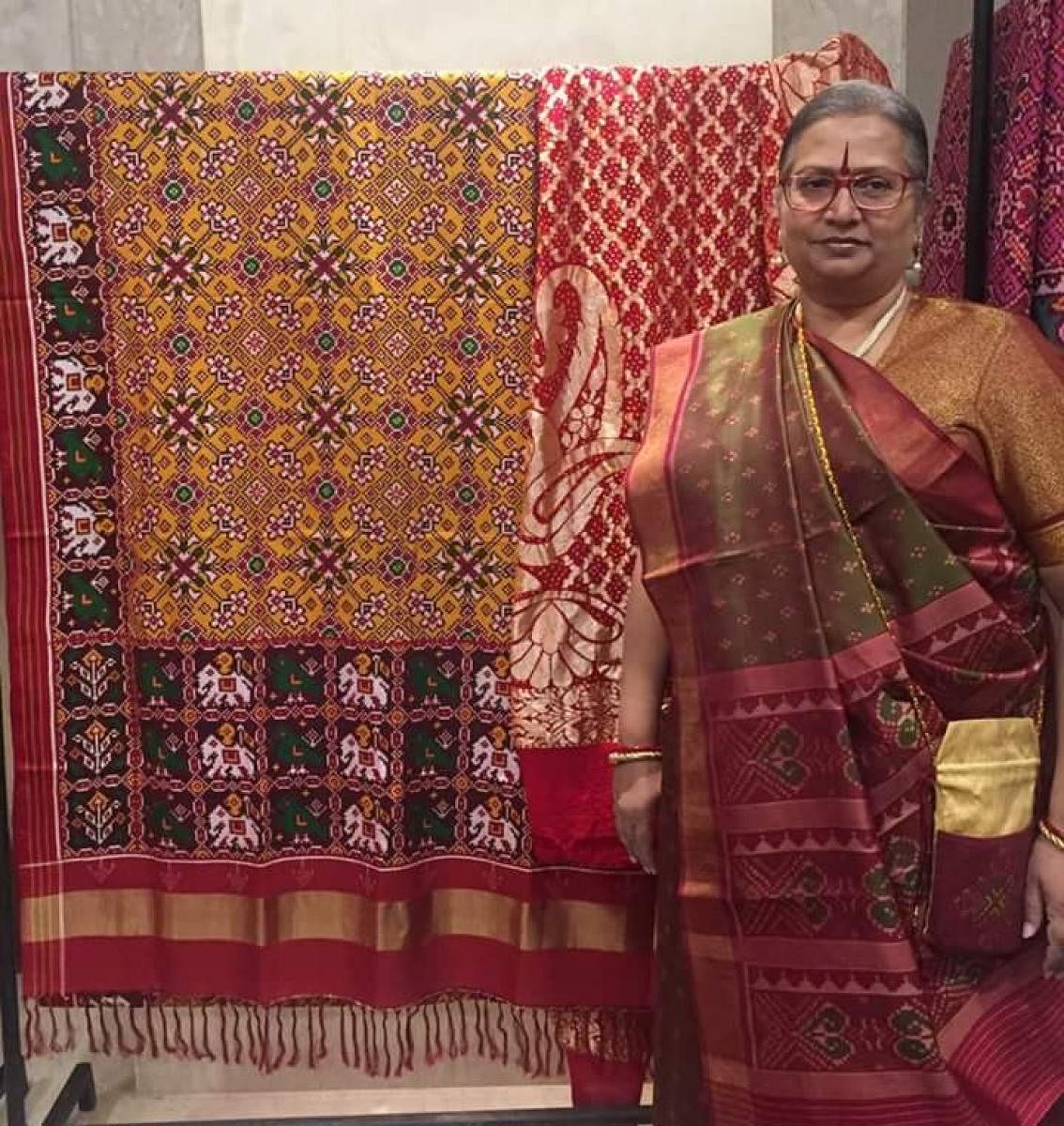
The textile industry, thriving before the pandemic, is now struggling to keep afloat, says an expert working for four decades with weavers.
Bela Shanghvi, who has championed the revival of handloom and khadi, is educating consumers about the significance of Patola saris, woven in silk and cotton in a city called Patan in Gujarat.
In Bengaluru for an exhibition at the Bangalore International Centre, Bela says, “The glory of Patola lies in the fact that no other fabric demands extreme precision in design, tying of the warp and weft yarns, dying, and weaving of its complex motifs.”
Lack of skills, rather than competition from powerlooms, is a big concern.
“It is impossible for the machines to duplicate the combinations and complexities of the art,” she says.
For weavers of Patola saris, about 60% of all orders got cancelled after the pandemic broke out, she says. With few social occasions, people began to buy less.
The demand is slowly picking up now from discerning buyers, she says.
Cost of making
Just the raw materials to make a Patola cost Rs 25,000, and a single sari takes two to four months to make.
A ‘double Patola’ takes nine months to two years. The artisans need to feed their families during that period, and that is the reason prices are on the higher side, she says. If consumers are not ready to invest in Patolas, weavers, already small in number, will switch to other jobs, Bela fears.
Only five masters
“When I started out 41 years ago, there were only one and a half weavers. One had a complete knowledge of the Patola weaving craftsmanship while the other had some amount of understanding,” she explains. Later, the number grew to five.
The five master weavers are now teaching other artisans. “If we do not pass on the knowledge, this form of textile will soon cease to exist,” she warns.
Patola saris are on display and sale at @theffoliostore from 10 am to 7.30 pm today.